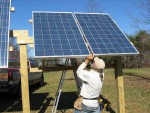- Share on Facebook
- Like
- Digg
- Tumblr
- VKontakte
- Buffer
- Love This
- Odnoklassniki
- Meneame
- Blogger
- Amazon
- Yahoo Mail
- Gmail
- AOL
- Newsvine
- HackerNews
- Evernote
- MySpace
- Mail.ru
- Viadeo
- Line
- Comments
- SMS
- Viber
- Telegram
- Subscribe
- Skype
- Facebook Messenger
- Kakao
- LiveJournal
- Yammer
- Edgar
- Fintel
- Mix
- Instapaper
- Copy Link
- Bluesky
The opening week of the west Virginia legislative session will be marked for generations as the anniversary of the January 9th MCHM Chemical Disaster of 2014 that contaminated the water of 300,000 West Virginian’s including the state capitol. The 2015 Legislative session kicked off this past week marking the first anniversary of the disaster that should dominate the environmental policy discussion among law makers for generations to come. Despite the disappointing fact that Gov. Tomblin propped up coal and gas in his state of the state address last week but failed to mention the water crisis or cleaning up of streams in any way shape or form, there are some encouraging words from WVDEP.
On January 9th, 2015 Secretary of the West Virginia Department of Environmental Protection, Randy Huffman told attendees of an event hosted by the Safe Water Round Table that he would ensure the rules developed last year in by order of the historic Senate Bill 373 are passed by the legislature as written. Secretary Huffman also told attendees that he would stand by his proposed legislative rules to re-designate the Kanawha River as a “Category A” stream instituting a goal through regulation to make the river eligible for a secondary water intake for the regional water system. Huffman stated he would oppose proposals threatened in the upcoming session that would declassify many other streams in the state with the default public drinking water designation. He referred to such proposals as” moving us backward”
The in attendance at the January 9th event Sen. Joe Manchin stated West Virginia Water should be “the cleanest and best water in the country”. Even if the words from Sen. Manchin on the anniversary of the MCHM disaster were just saying the right thing at the right time and not backed by substantive policy positions, it is still an idea clean water advocates can push for this legislatives session.
Sen. Machin setting his high philosophical goal of the “cleanest and best water in the country” and Secretary Huffman taking a policy stand opposing removal of public drinking water use designations make it clear the outrage sparked by citizens after the 2014 MCHM disaster had an impact on West Virginia water resource policy. In the 2015 Legislative Session we will have an opportunity to start the long process of making West Virginia water the “Cleanest and best water in the country” by helping the WVDEP keep the strong S.B. 373 regulating above ground storage tanks and requiring meaningful source water protection plans.
It is essential that the source water protection planning requirements in S.B. 373 remain strong so the power built by groups like Advocates for a Safe Water System can be leveraged to create change. On January 17th 2015 Advocates for a Safe Water System held an event educating citizens on the elements of a safe water system and training them on how to build power within their own communities to be effective advocates in preventing another chemical disaster from tainting our water. Advocates for a Safe Water System need a source water protection planning requirement that enables them to create creditable and durable change that is transparent to effectively prevent another disaster.
In order to truly begin the process of making West Virginia Water the cleanest and best water in the country we must push to stop legislative rules proposed by WVDEP to exempt coal mine discharges from water quality standards. WVDEP has proposed rules that will eliminate a provision in its tool box and at its disposal that requires coal mine discharges to comply with all water quality standards. This proposal will be up for approval in the 2015 Session and if approved will be moving us backward on water quality in the state.
Another tool that is essential to begin the process of making West Virginia Water the cleanest and best water in the country is the ability to classify streams as impaired using the credible procedure of WVSCI scores that used by WVDEP until the legislature complicated matters in 2012 with Senate Bill 562. Senate Bill 562 should be repealed to allow WVDEP to continue doing its job. Since WVDEP has taken the policy position that it cannot make new biological stream impairment classifications until a new tool for doing so is developed as ordered by SB562 thousands of miles of streams are not being cleaned up and further pollution continues.
Citizens should be on call to contact their representatives in the House of Delegates and the Senate to relentlessly make the following asks:
- Maintain “Category A” as a the default designation for all streams in the state
- Maintain the Strong Above Ground Storage Tank and Water Resource Protection Act of 2014
- Reject proposed rules that allow coal mine facilities to violate water quality standards
- Repeal Senate Bill 562 passed in 2012 pertaining to designation and clean-up impaired streams









